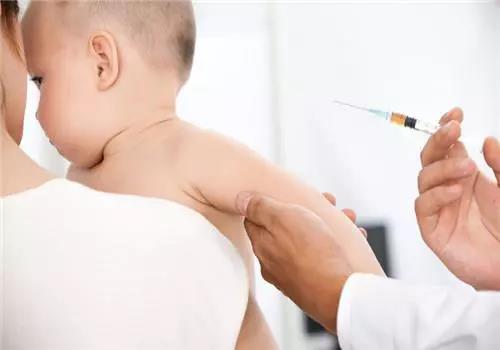Why are there no antibodies in the body after the hepatitis B vaccine? Y
- Normal Liver Cells Found to Promote Cancer Metastasis to the Liver
- Nearly 80% Complete Remission: Breakthrough in ADC Anti-Tumor Treatment
- Vaccination Against Common Diseases May Prevent Dementia!
- New Alzheimer’s Disease (AD) Diagnosis and Staging Criteria
- Breakthrough in Alzheimer’s Disease: New Nasal Spray Halts Cognitive Decline by Targeting Toxic Protein
- Can the Tap Water at the Paris Olympics be Drunk Directly?
Why are there no antibodies in the body after the hepatitis B vaccine?
Why are there no antibodies in the body after the hepatitis B vaccine? You must have overlooked these three factors!

We can always hear people around us complaining whether the hepatitis B vaccine is fake, and why does it not produce antibodies after the shot?
Studies have found that the non-response rate of healthy people after being vaccinated with hepatitis B vaccine is about 10%-15%. The reasons for this result are actually very complicated, but the most common factors are vaccine factors, vaccination factors and immune factors.
The average titer of hepatitis B vaccine induced by different manufacturers will be different. Some people think that domestic vaccines and imported vaccines have different effects. In fact, it is because of the different manufacturers. Although we do not know their production processes, different manufacturers It is obviously unlikely to produce exactly the same vaccine.
But sometimes, the effect of the vaccine is not directly related to the manufacturer, and the difference in the dose will also bring about the difference in titer. The study found that within the allowable dose range, the conversion rate of high-dose vaccines to positive antibodies is higher than that of low-dose vaccines. The vaccination should be high.
We all know that gene mutation is almost common to all viruses. The same is true for hepatitis B virus. If the vaccine used does not contain the gene of the virus variant strain, if it encounters a rare hepatitis B virus subtype, the vaccine will not produce a protective effect.
As for vaccination factors, studies have confirmed that subcutaneous vaccination of hepatitis B vaccine has the worst effect, followed by intradermal vaccination, followed by intramuscular vaccination. This is why hepatitis B vaccine must be injected intramuscularly. In fact, different muscle parts have different vaccination effects. The deltoid muscle of the upper arm has the best effect and the buttock has the worst effect. The reason is that the fat in the hips is thicker, which delays the time for the vaccine to enter the blood circulation. Studies have also found that increasing the number of injections can also increase the success rate of vaccination.
In fact, the result of hepatitis B vaccination is not only closely related to the immune program, but also directly related to whether the immunity is normal or not. If the immunity is low (such as AIDS patients or taking immunosuppressive agents), the body cannot produce sufficient amounts after vaccination. After vaccination, the test will also show negative.
Of course, there are also some patients with low-level HBV infection that cannot be detected by ordinary serological testing methods. The patients mistakenly believe that they do not have hepatitis B. At this time, if they receive hepatitis B vaccine, there will be no immune response. In many cases, this also leads to hepatitis B vaccination failure Therefore, when other factors are excluded, if repeated vaccination fails, then we should also consider whether we have been infected with HBV.



